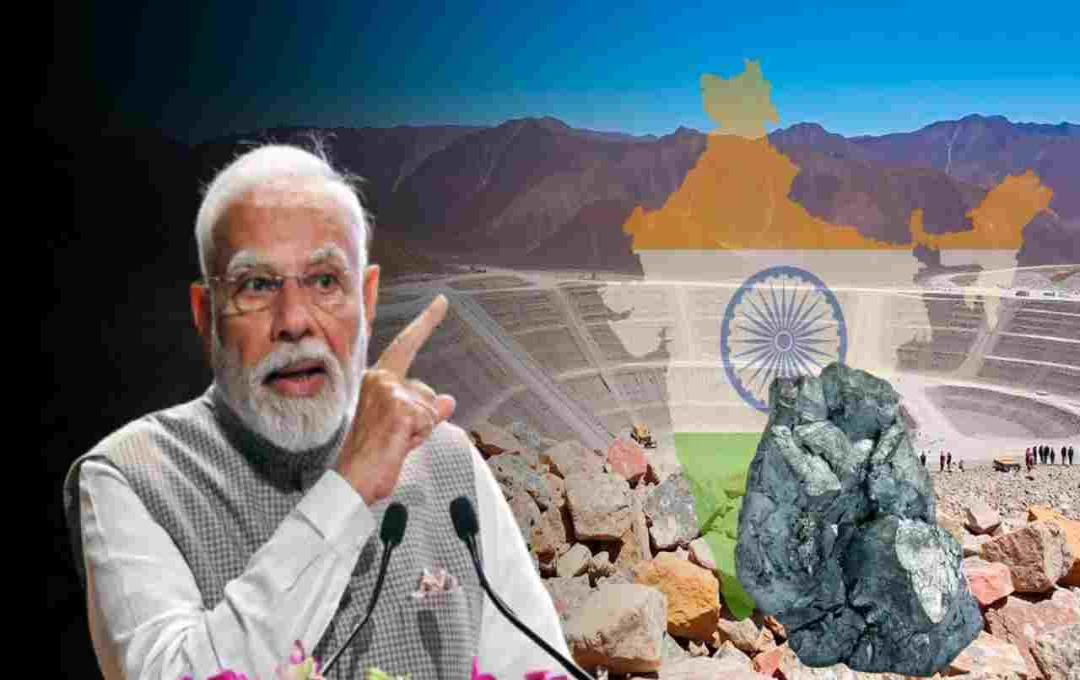To challenge China's growing dominance, the Government of India has decided to spend approximately ₹6,000 crore on the exploration and acquisition of rare earth minerals in foreign countries. This will be achieved by amending mining laws and introducing a funding scheme under the National Minerals Exploration Trust (NMET). This step is aimed at strengthening the supply chain in the electronics and automotive sectors and enhancing the country's economic security.
New Delhi: In a significant meeting on Tuesday, the government prepared a proposal to raise ₹6,000 crore for the exploration and acquisition of rare earth minerals abroad. To facilitate this, an amendment bill to the Mines and Minerals (Development and Regulation) Act will be introduced in Parliament on Monday. This bill represents a major effort to make India self-reliant in the global mineral market and reduce the country's dependence on China. The government has paved the way for the purchase of mineral assets abroad using NMET funds, which is crucial for the country's industrial development strategy.
The Importance of Rare Earths and China's Growing Grip

Rare earth minerals are a critical component of today's technology. The demand for these minerals is rapidly increasing in smartphones, electronic devices, electric vehicles, and the automotive sector. However, China's dominance over the supply of these minerals is significant. In recent times, China has limited the supply of rare earths, causing problems for several countries, including India, in the electronics and auto sectors. Experts believe that if a solution is not found quickly, smartphone and auto production will be severely affected.
Proposed Changes to Mining Laws in Parliament
The government plans to introduce a bill in Parliament to amend the Mines and Minerals (Development and Regulation) Act. The aim of this bill is to approve state funding for the acquisition of critical mineral assets abroad. This proposal is designed to raise funds for such acquisitions from the National Minerals Exploration Trust (NMET). The NMET has approximately ₹6,000 crore available, accumulated as royalty.
Expansion of the National Minerals Exploration Trust

The government is also considering renaming the trust to include the word 'Development' in its scope. The aim is to expand the trust's work beyond just exploration to include the acquisition and development of mineral assets. In this way, the government's strategy is to ensure the availability of raw materials and strengthen the supply chain.
The government is also going to address the problem of mineral dumps accumulated in many captive mines. Under the current rules, the disposal of these dumps is difficult because many of them are of lower grades that cannot be used in plants. Under the proposed changes, state governments will be allowed to dispose of these mineral dumps through one-time sales. This will enable better management of captive mines and ensure the proper use of mineral resources.
Facility to Include Newly Discovered Minerals in Existing Leases
In addition, there is a proposal to simplify the rules for including newly discovered minerals and surrounding areas in existing mining leases. Leaseholders will now be able to expand their leased area by up to about 10 percent with a one-time permit. This will promote growth in the mining sector and maximize the utilization of resources.
A Major Step Towards India's Mineral Security
This step by India will not only ensure the country's raw material security but also strengthen India's position globally. This effort to reduce dependence on China for rare earths is essential from a technological and economic security perspective. This move by the government will provide stability to the electronics, automotive, and many other emerging industries.










